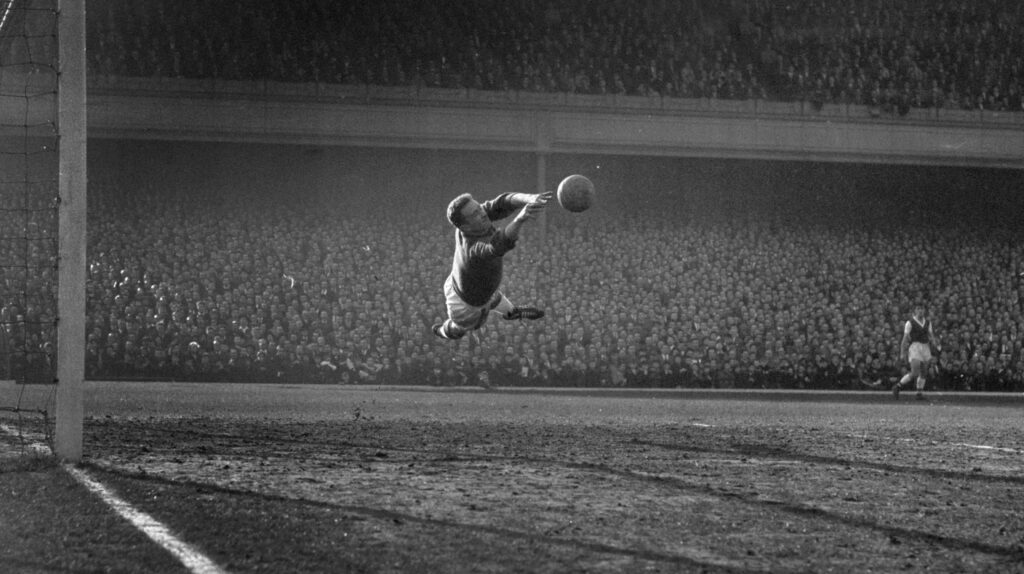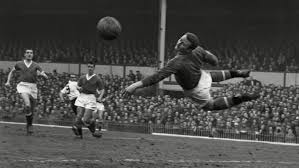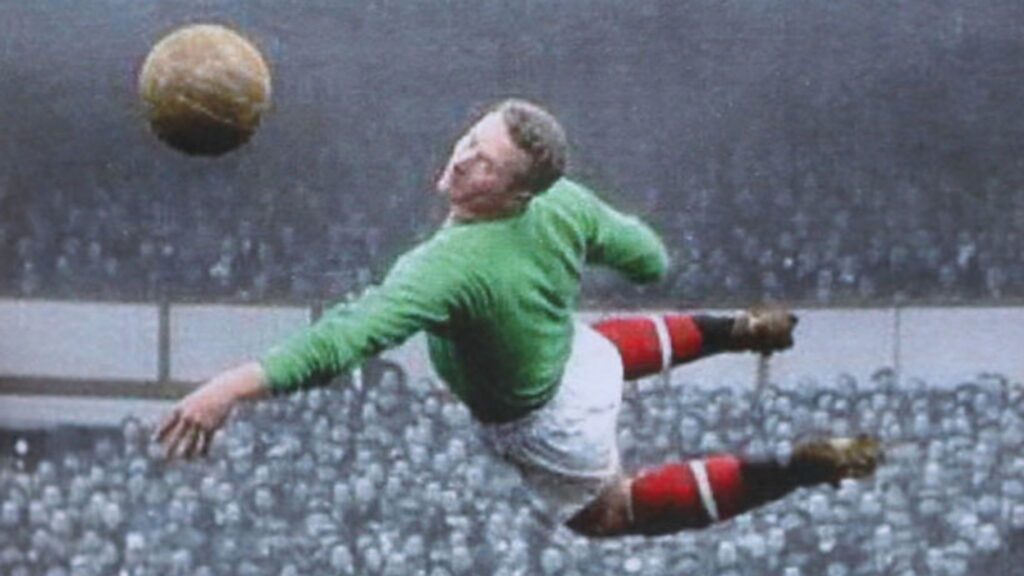
Harry Gregg is remembered not only as one of Northern Ireland’s greatest footballers, but also as a goalkeeper who combined courage, athleticism, and leadership in a way that set him apart. Though his career was cut short at times by injuries and circumstance, Gregg’s legacy is defined by both his on-field brilliance and his off-field heroism.
🏆 1. Career & Achievements
- Club Career:
- Played for Doncaster Rovers before joining Manchester United (1957–1966).
- Became the world’s most expensive goalkeeper when United signed him for £23,000 in 1957.
- Despite injuries, he made over 200 appearances for United.
- Played in two FA Cup finals (1958, 1963).
- International Career (Northern Ireland):
- Earned 25 caps.
- Starred at the 1958 World Cup in Sweden, where Northern Ireland reached the quarterfinals — their best-ever finish.
- Named Best Goalkeeper of the 1958 World Cup by FIFA, ahead of legends like Lev Yashin.

🧤 2. What Made Him Stand Out
- Bravery & Courage
Gregg was fearless in throwing himself into challenges, often putting his body on the line against charging strikers. - Athletic Shot-Stopping
Known for incredible reflexes and agility, Gregg was capable of pulling off miraculous saves from point-blank range. - Command of the Box
Strong and authoritative in dealing with aerial threats, he gave defenders confidence by dominating his penalty area. - Leadership Qualities
He wasn’t just a goalkeeper — he was a leader, known for his voice, presence, and ability to organize defenses. - World Cup Heroics (1958)
His performances in Sweden, including a legendary display against Czechoslovakia, cemented his reputation as one of the finest in the world at the time.
🔬 3. Innovations & Contributions
Harry Gregg wasn’t a tactical innovator like Manuel Neuer or José Luis Chilavert, but he advanced the position in subtle, important ways:
- Modern Aggression in Goalkeeping
- Gregg was among the first keepers to consistently come off his line aggressively to narrow angles and attack the ball, something later refined by keepers like Schmeichel.
- Physicality as a Standard
- His bravery in collisions and command of the penalty area helped redefine expectations of a keeper’s physical dominance.
- Leadership from the Back
- Gregg exemplified the goalkeeper as a defensive captain, using his voice and presence as much as his hands — a model for later leaders in goal.

🌍 4. Cultural & Historical Impact
- Munich Air Disaster Hero (1958)
Gregg’s courage off the pitch is just as legendary. After surviving the crash that killed 23 people, including many Manchester United teammates, he pulled survivors — including Bobby Charlton and Dennis Viollet — from the wreckage, saving lives. This act of heroism cemented him as a footballing and human icon. - The “Hero of Munich” and the “Best Never to Win a Medal”
Though he never won major trophies with United due to injuries and bad luck, his reputation as one of the world’s best keepers remained untarnished. - Respected Mentor
After retiring, Gregg worked as a coach and scout, sharing his wisdom with younger generations.
✅ In short: Harry Gregg is one of the greatest goalkeepers because of his bravery, athleticism, and leadership, highlighted by his World Cup heroics in 1958 where he was named the tournament’s best keeper. He was not a radical innovator, but he helped shape the modern expectation that goalkeepers must be courageous leaders who dominate their area and inspire their teammates. His heroism at Munich transcended sport, making him a true legend of football and humanity.
Goalkeeper Glove Care
Extend your gloves’ lifespan and restore grip with KEEPER BALM. Trusted by goalkeepers worldwide.
It keeps goalkeeper gloves gripping like new, forever.